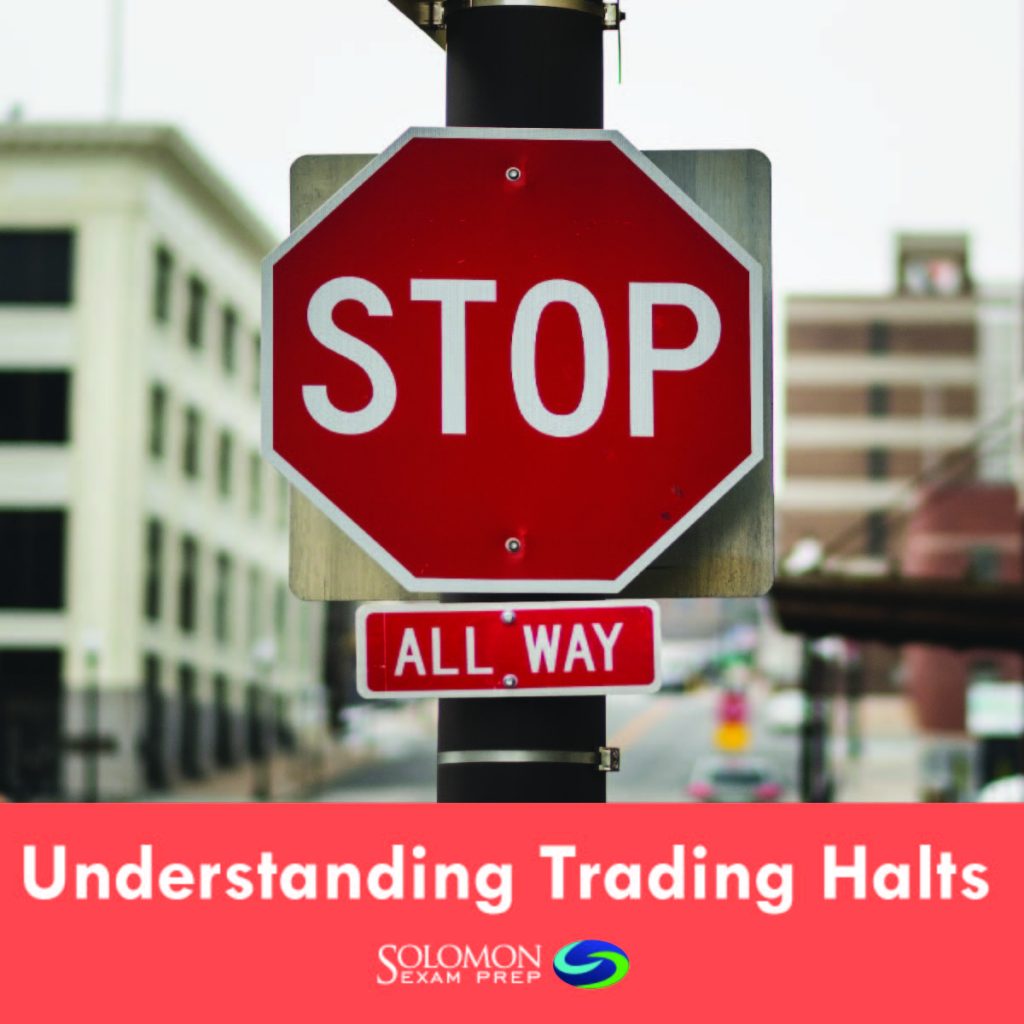
Understanding Trading Halts
Market-Wide Trading Halts
The market’s intense reaction to the coronavirus has caused something not seen since 1997: trading halts. Continue reading

Understanding Trading Halts
Market-Wide Trading Halts
Effective April 1, 2014, five federal agencies will implement a provision of the Dodd-Frank Act known as the Volcker rule. This rule prohibits a bank from making short-term trades in financial instruments for its own account. The rule also limits the relationships a bank can have with hedge funds and private equity funds. Continue reading
Effective April 1, 2014, five federal agencies* will implement a provision of the Dodd-Frank Act known as the Volcker rule. This rule prohibits a bank from making short-term trades in financial instruments for its own account. The rule also limits the relationships a bank can have with hedge funds and private equity funds.
The rule provides exemptions for certain activities, including underwriting, market making, hedging risk, trading in certain government securities, trading in a fiduciary capacity, and riskless principal trading. Foreign banks are exempt if the trades meet certain requirements. Insurance companies are exempt when trading for their general or separate accounts.
The rule requires banks engaging in the activities covered by the rule to put in place a compliance program. The level of detail of the compliance program depends on the size of the bank, with larger banks needing more detailed compliance programs.
*The five agencies are the Board of Governors of the Federal Reserve System, the Office of the Comptroller of the Currency, the Federal Deposit Insurance Corporation, the Securities and Exchange Commission and the Commodity Futures Trading Commission.
Source: SEC Release 2013-258: Agencies Issue Final Rules Implementing the Volcker Rule
This alert applies to the Series 6, Series 7, Series 24, Series 55, Series 62, and Series 79.
For many, the hardest part of the FINRA Series 79 Investment Banking Exam relates to material covered in section one of the FINRA exam outline Continue reading
For many, the hardest part of the FINRA Series 79 Investment Banking Exam relates to material covered in section one of the FINRA exam outline: Collection, Analysis and Evaluation of Data. “Not only is this first section particularly challenging,” says Solomon Exam Prep President Jeremy Solomon, “it contains 75 questions or 43% of the 175-question exam. To pass the Series 79 exam, it’s imperative that the test-taker understand this subject matter.” To help customers gain a better understanding of this material, Solomon Exam Prep has added new valuation and transaction analysis questions to its Series 79 online exam simulator. These questions are based on original financials that the exam simulator customer must read and interpret, like the actual Series 79 investment banking exam.
Solomon Exam Prep has published the first complete 175 question practice exam for the FINRA Series 79 Limited Investment Banking Representative Exam. Continue reading
Solomon Exam Prep has published the first complete 175 question practice exam for the FINRA Series 79 Limited Investment Banking Representative Exam. Questions follow the format, proportion and four major content areas of the actual exam and were written by an experienced investment banker, practicing attorney and former hedge fund compliance director.
According to FINRA: “Effective November 2, 2009, amendments to NASD Rules 1022 and 1032 require individuals whose activities are limited to Continue reading
November 2 is just around the corner.
According to FINRA: “Effective November 2, 2009, amendments to NASD Rules 1022 and 1032 require individuals whose activities are limited to investment banking and principals who supervise such activities to pass the new Limited Representative – Investment Banking Qualification Examination (Series 79 Exam). Individuals who are registered as a General Securities Representative (Series 7) and engage in the member firm’s investment banking business as described in NASD Rule 1032(i) may “opt in” to the new registration category.”
It’s interesting to note that at this time, FINRA has not announced what a passing score will be. “The passing score for the examination is the minimum number of test questions that a candidate has to answer correctly in order to pass the examination. The Committee, using a standard setting procedure, establishes the passing score for the examination. The passing score is an absolute standard and it is independent of the performance of candidates taking the examination. Since multiple forms of the examination will be administered, the passing score will fluctuate moderately from examination to examination.”
If your firm has not created a Series 79 training program, what can you do to get the new Investment Banking Representative registration?
As per FINRA Regulatory Notice 09-41: “during the six-month transition period (November 2, 2009 – May 3, 2010), new Investment Banking Representative candidates who are in the process of qualifying for the new Investment Banking Representative registration category can take either the Series 79, the Series 7 or a Series 7-equivalent exam. A candidate who takes and passes the Series 7 Exam or Series 7- equivalent exam could then opt in to the Investment Banking Representative registration.
“Series 7 equivalent exams” and registrations are the Limited Representative—Corporate Securities (Series 62), the United Kingdom (Series 17) or Canada (Series 37/38) Modules of the Series 7.